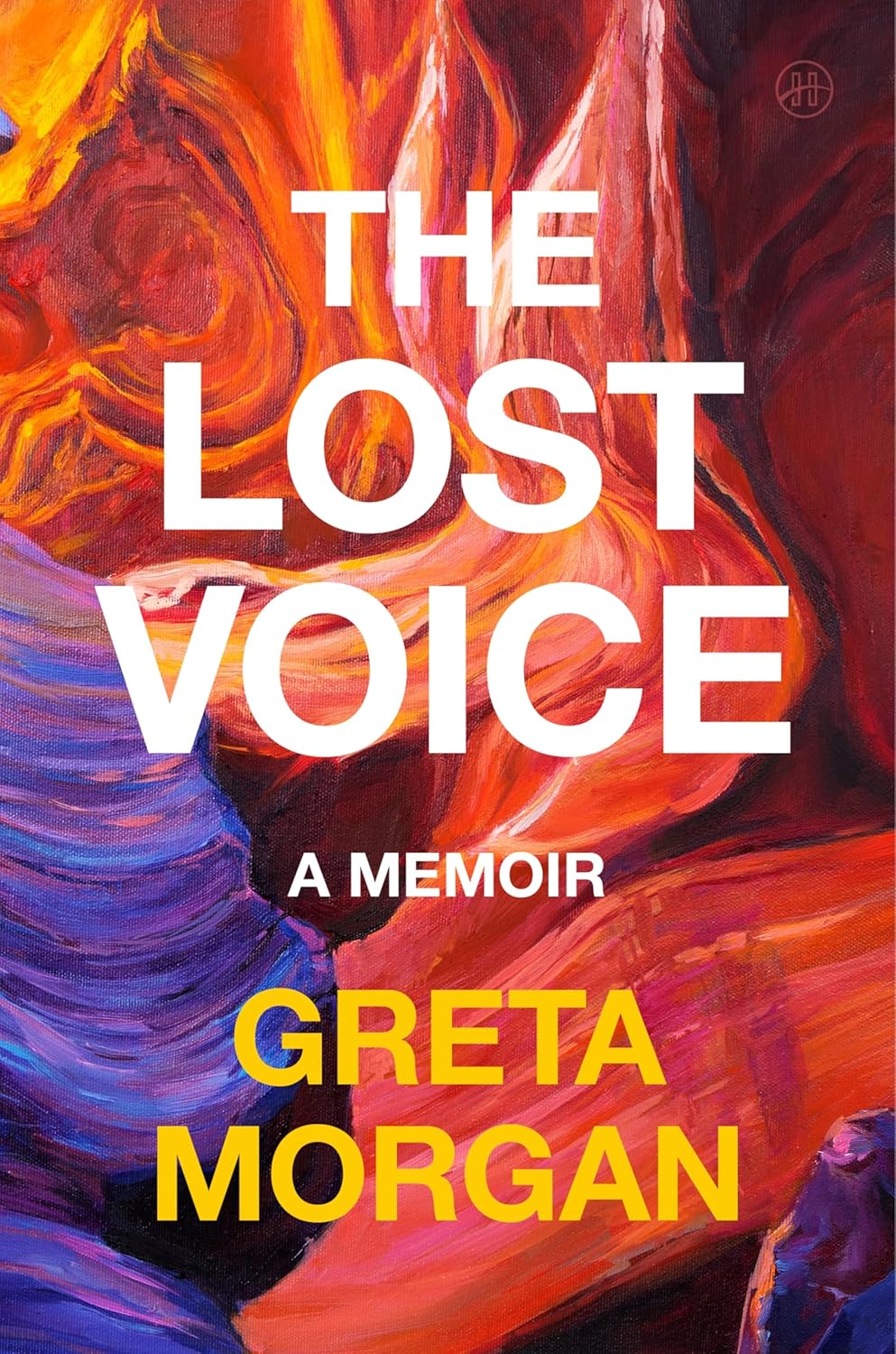In her exquisite new memoir, The Lost Voice: A Memoir (HarperOne, May 20, 2025), singer, songwriter, and musician Greta Morgan shares her journey from devastating loss to heartening hope. Her opening epigraph, a haiku by the Buddhist poet Mizuta Masahide, nicely prepares readers for the book’s movement from fullness to emptiness to restoration: “Since my house burned down/I now own a better view/of the rising moon.”
Growing up in the Chicago suburbs, Morgan absorbs music at a young age by listening to her mother playing “Ave Maria” on the piano. During her own piano lessons, she improvises on a Beethoven composition—“I scanned the sheet music and grabbed a few chords, then created a repeating pattern and added my lines of poetry over them”—earning her the ire of her teacher. In Catholic school, Morgan discovered the power of story when she wrote about two classmates who travelled to hell, which she imagined as a fiery furnace underneath a MacDonald’s; her principal told her to “stop telling serious stories about hell.” When she listened to songs by Simon and Garfunkel, Joni Mitchell, Marvin Gaye, and Michael Jackson, she felt as if the “songs were like the keys opening doors within me that I never even knew existed. . .with every verse, I was entering a new room, a new world.”




